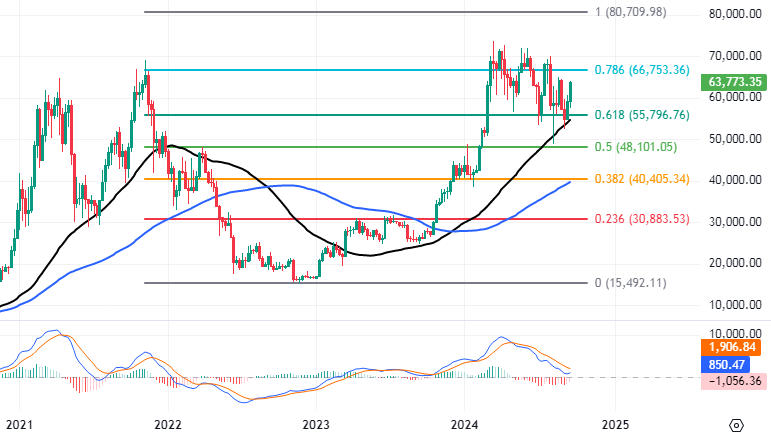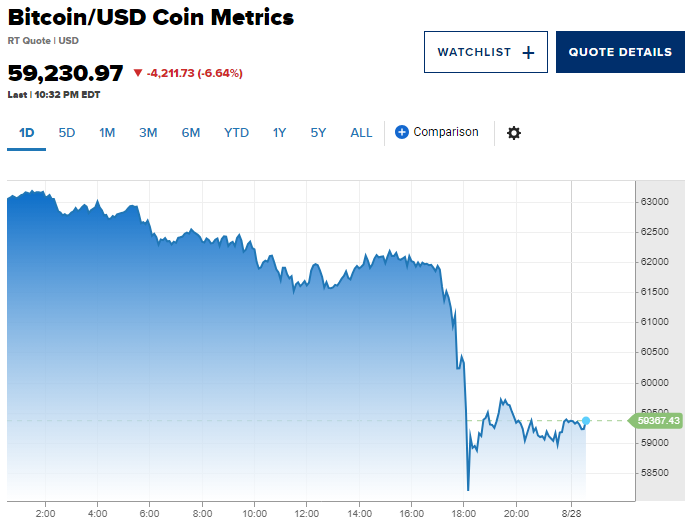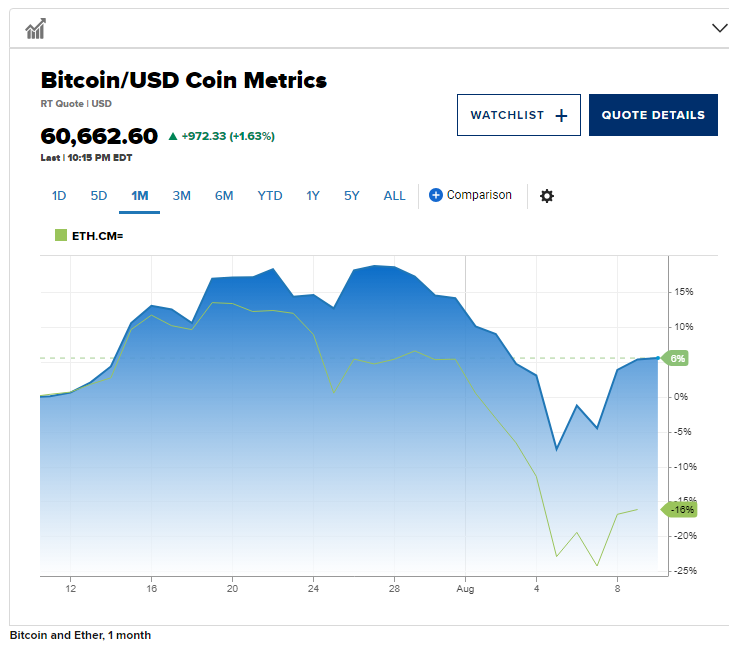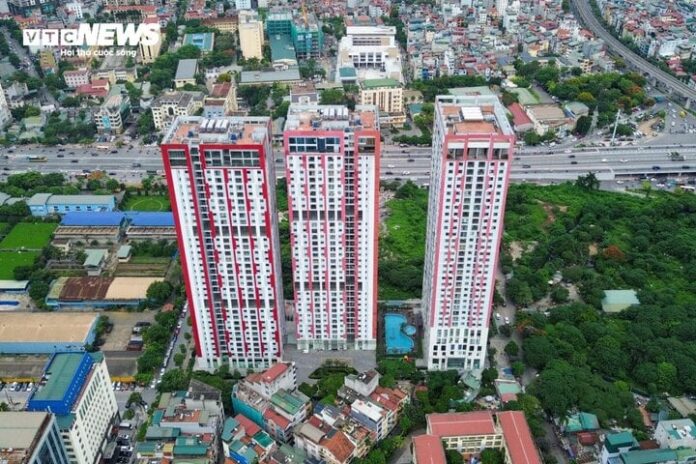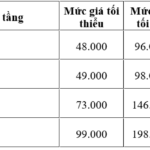Since the beginning of August, many banks have increased their promotional fixed interest rates for the first 1-3 years and floating rates to 0.5-1%/year for home purchases.
Specifically, the lending rate for home purchases currently ranges from 4.99% to 9.5% per annum. After the promotional period, the floating rate for existing borrowers from banks is mostly above 11% per annum.
Having recently borrowed over VND 1 billion to invest in a two-bedroom apartment of approximately 70m2 in Thanh Xuan District, Hanoi, with a promotional interest rate of only 6% in the first year, Tran Mai Xuan is concerned about the rising lending rates.
“Recently, there has been a stir in interest rates. If the floating rate next year is around 11-13%, I will have to bear a huge debt burden. I hope the floating rate will only increase to 9-10% at most. If the interest rate goes too high, I will have to consider borrowing from friends and family to reduce my bank loan,” said Ms. Xuan.
Unlike Ms. Mai, who boldly invested with a bank loan, many people are now hesitant to do the same. They reason that although the lending rates for home purchases are currently low, these rates only apply for a short period, ranging from 3 to 6 months or, at most, one year. Thereafter, the rates become floating and are quite high, ranging from 9% to 10% per annum, with some banks even charging 12-13%.
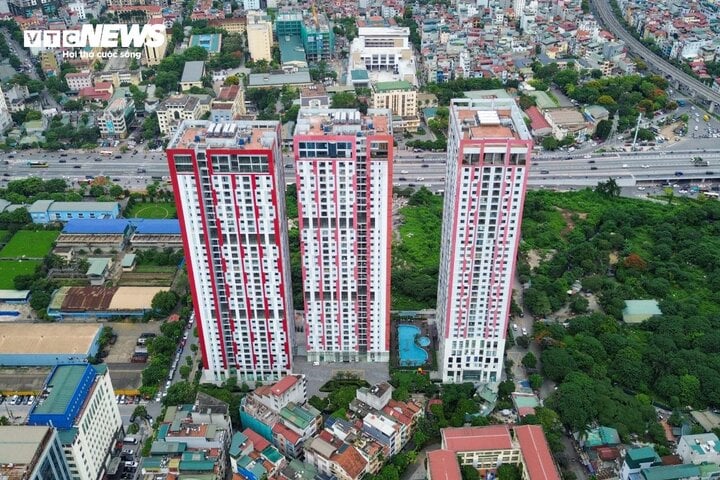
With rising lending rates, is it a good time to invest in real estate? (Photo: Minh Duc).
A recent survey of consumer sentiment in the real estate market by PropertyGuru Vietnam revealed that over 50% of respondents considered lending rates of below 8% reasonable for home purchases. About 29% were willing to accept rates of 8-10%, while only 10% were comfortable with rates of 10-13% (based on floating rates). However, most borrowers shared that they were paying an average interest rate of over 11.5-13%.
Mr. Dinh Minh Tuan, Director of PropertyGuru Vietnam in the Southern region, advised against prioritizing real estate investment with borrowed money at this time. He predicted that in the next few months to half a year, as bank interest rates increase, lending rates for home purchases will also rise, especially with floating rates, which could result in significant financial pressure.
Expert Nguyen Tri Hieu also pointed out another reason to consider when borrowing money to invest in real estate. He stated that real estate prices are currently too high, and when property prices are high, so is the debt burden. Moreover, with such high prices, investors may not be able to afford to purchase, even with a bank loan of 70-80%.
Additionally, according to experts, investing in real estate at this time does not offer high returns.
Previously, renting a VND 3 billion apartment could generate a monthly income of VND 10-12 million. Now, to achieve the same rental income, the initial investment must be increased to VND 4.5-5 billion. Therefore, the profitability of renting is not very attractive.
According to Mr. Dinh Minh Tuan, those considering purchasing or investing in real estate in Hanoi or Ho Chi Minh City should only do so if their monthly income is VND 30 million or higher. Currently, the lowest price for a house or apartment in these two major cities is VND 2-2.5 billion. If an individual borrows 50-70% of the property value, they will have to repay approximately VND 1.4-1.5 billion, including VND 12 million in interest and about VND 5 million in principal each month.
“If your monthly income is VND 30 million or higher, after deducting the VND 17 million for interest and principal payments, you will still have at least VND 13 million to cover basic living expenses. However, if your income is less than VND 30 million, it will be challenging,” said Mr. Tuan.
However, Mr. Tuan added that in about two to three years, when borrowers start to face floating interest rates, the market is also expected to recover, providing opportunities for investors to sell or profit from their investments.
Nevertheless, if one is considering investing in land, Mr. Tuan advised extra caution. Land investment is a long-term endeavor that requires substantial capital, and while the market is predicted to recover, it will likely be stable without the dramatic price surges seen in previous years.
Therefore, borrowing money to invest in land with the expectation of short-term gains through price speculation is challenging. Investors need to be prepared for a long-term commitment, and only those with stable income and surplus capital should consider borrowing, and even then, it is recommended to not borrow more than 30% of the asset’s value.
Which bank offers the highest interest rate for online savings in early February 2024?
Beginning February 1st, 2024, several banks have been adjusting their interest rates downwards for savings accounts ranging from 1 to 24 months. Based on a survey conducted across 16 banks, the highest annual interest rate for online savings deposits at a 6-month term is 5%, while for a 12-month term, it is 5.35%.
Banking: Huge Profits Yet Worried
Several banks have announced their 2023 financial results, showing outstanding growth. However, they are also facing increased pressure in setting aside provisions for credit risk.






















